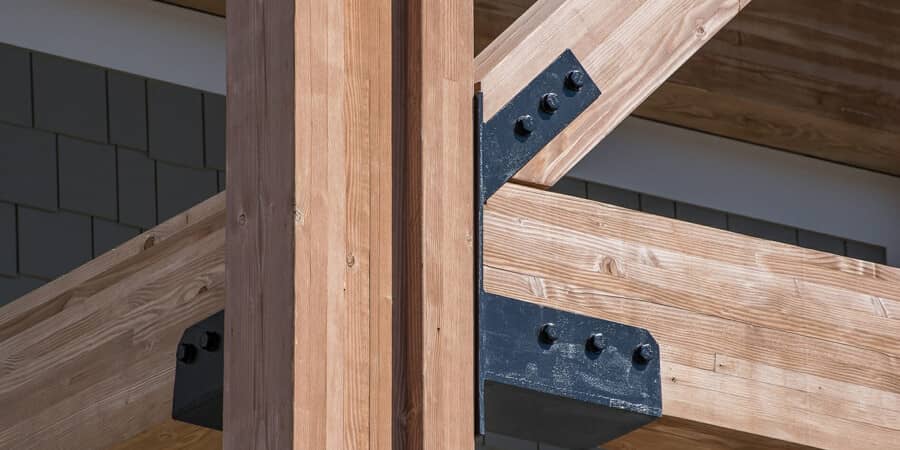
If you’re planning an on-site construction project, one of the biggest decisions you’ll have to make is choosing the right building material. Two of the most popular options you will have to choose from include metal and wood.
While each material has its own unique advantages and disadvantages, your choice ultimately depends on several factors, such as the intended use of the structure, the location and climate, budget, and personal preferences.
Here’s a detailed look at both options so you can make a well-guided decision with the help of Hinton Buildings.
Metal Buildings
Metal structures have many advantages, including:
Durability:
Metal is a strong material that can withstand harsh weather conditions such as heavy rain, wind, and snow. It is also resistant to pests, such as termites, which can damage wooden structures.
Low Maintenance:
Metal buildings require minimal maintenance, as they are resistant to rot, mold, and mildew.
Customizable:
Metal structures can be customized to fit specific needs and design preferences.
Limitations of Metal Structures
Some of the drawbacks you can expect from building with metal include:
Cost:
Metal buildings tend to be more expensive than wooden buildings due to the cost of materials and construction.
Limited Aesthetics:
While metal buildings can be customized to a certain extent, they may not have the same aesthetic appeal as wooden structures.
Noisy:
Metal structures tend to be noisy during rain or hail storms due to the metal surface.
Wooden Buildings
Advantages of wood structures include:
Affordability:
Wooden structures tend to be less expensive than metal structures due to the cost of materials and construction.
Aesthetic Appeal:
Wood has a classic look and feel that many people find appealing.
Sustainability:
Wood is a renewable resource that can be sourced from sustainably managed forests, making it an eco-friendly option.
Insulation:
Wooden buildings offer better insulation compared to metal buildings.
Limitations of Wooden Buildings
Durability:
Wooden structures are susceptible to rot, mold, and mildew, especially in damp environments, and can be damaged by pests such as termites.
High Maintenance:
Wooden buildings require regular maintenance such as painting, sealing, and termite treatment to maintain their durability.
Fire Hazard:
Wood is a flammable material, which can make wooden structures a fire hazard.
Which One Is Right for You?
Now that we’ve discussed the advantages and disadvantages of both metal and wooden buildings, you might be wondering which one is the right choice for your on-site project. Here are some things to consider:
Intended Use
If you’re planning to use the structure for heavy-duty industrial purposes, metal might be the better choice due to its durability. However, if you’re planning to use the structure for residential or commercial purposes, wood might be more aesthetically pleasing.
Location and Climate
If you’re building in an area with extreme weather conditions, such as high winds or heavy snow, metal might be a better choice due to its durability.
However, if you’re building in an area with a more moderate climate, wood might be a better choice due to its insulation properties.
Budget
If you’re on a tight budget, wood might be a more affordable option. However, keep in mind that wood requires more maintenance than metal, which could increase long-term costs.
Personal Preferences
Ultimately, the choice between metal and wood comes down to personal preferences. Some people prefer the classic look of wood, while others prefer the sleek, modern look of metal.
In Conclusion
Both metal and wood have their own unique advantages and disadvantages when it comes to building structures. The decision between the two ultimately depends on several factors, such as intended use, location and climate, budget, and personal preferences.
Consider these factors carefully before making a decision, and don’t be afraid to consult with experts in the field to help you make an informed choice.
